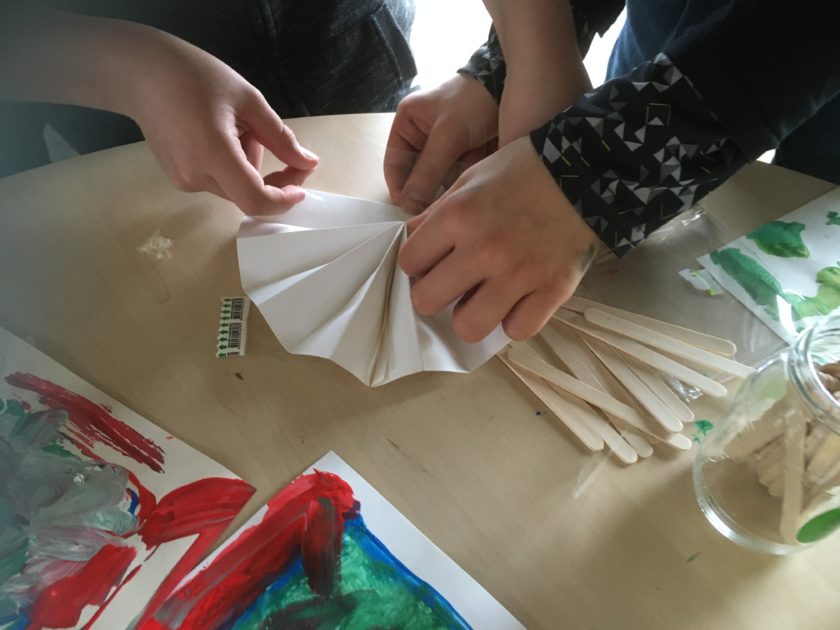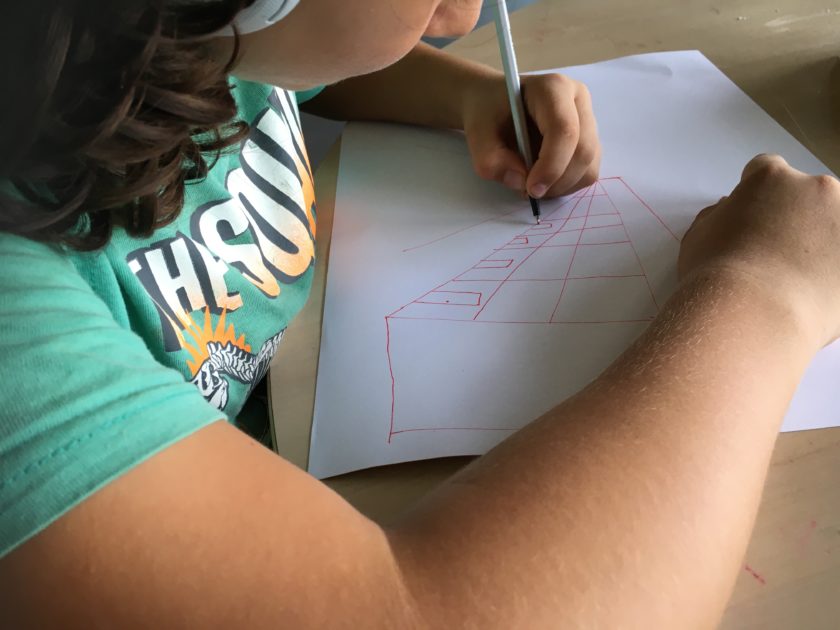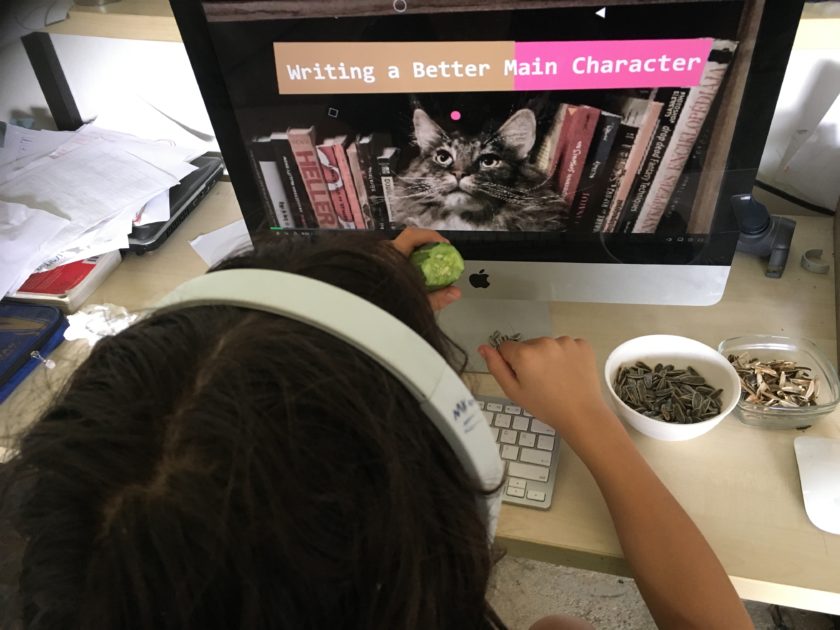Periodically it’s good to pause and observe how your homeschool is working, to check the balance between home and school is right; to assess what’s working, what could do with a tweak and to see if anything needs to be added to (or removed from) the curriculum/actual lessons/the routine of your homeschool.
Study weeks are similar to the idea of ‘deschooling’ – the process of taking a break from any kind of formalised learning/teaching in the period between leaving the school system and starting home educating. Deschooling is intended to re-spark a joy, a natural curiosity for learning, and study weeks work the same.
What is a Home-Ed Study Week?
Study weeks are a blend between a half-term holiday (that may or may not last a week or more) and a revision week before exams.
We call this downtime ‘Study Week’ partly because it sounds educative enough to pacify the ‘need-to-be-timetabled’ part of my parent-teacher brain; partly because it reminds our home learners that it’s not a holiday and they must be productive. Study weeks are downtime from the routine of school and sometimes that’s mentally good for us all.
Balancing all the roles you play – pupil/student/child/parent/teacher/facilitator – can get tiring and it’s easy for home and school to start to blur – either home life taking over unintentionally, or school taking over the home. Taking time out from ‘school’ allows you and your homeschooler to reconnect as only parent and child – the teacher’s away for the week.
It doesn’t of course mean you stop teaching – questions are still answered, homeschoolers are still steered toward projects, games, activities that will benefit them – but it does mean you get to spend time with your children without thinking about the home education side of that relationship. That’s important. Obviously, if home learners are working towards exams, keeping hold of the exam timeframe and evaluating their learning progress is important – really important! – but that doesn’t mean if you take a week off their education plan is going to fail.
Benefits of Homeschool Study Weeks
A good education will place as much importance on teaching the tools and skills needed to learn autonomously as it will on the knowledge the curriculum contains.
During study weeks, ask homeschoolers
- to experiment with new software (e.g a new-to-them computer programme (proficiency in , a writing app, new AI)
- to test-run any potential memberships or subscriptions that might be useful
- to spend extra time reading/crafting/exploring hobbies
- and to delve deeper into anything that interests them. Study weeks are a good way to passively teach children how to be self-led learners.
With a never-ending stream of new software, web-based learning environments and online qualification options; as the online and offline worlds blur (socially, in education and in working environments), learning (education) never, ever stops. We’re able to access the tools and information we need, to learn what we need to learn, as and when we need it.
Opportunities in the school year for home-learners to independently seek out knowledge
- validates their interests!
- encourages curiosity
- passively encourages self-motivated learning – a hugely valueable skill in such a fast-changing world.
What to Do in a Homeschool Study Week?
Parent/Teacher
- Evaluate the curriculum you’re using in your homeschool – take time to go through the resources and books you’re using. Get rid of any that aren’t being enjoyed either by your pupils or by you: Textbooks and resources that are boring, too easy, too challenging bring unnecessary stress into a homeschool environment.
- Think ahead – Look over the home-ed plan for the coming few months. Do any lesson prep that can be done in advance now and file it to pull out later. (Like cleaning the kitchen sink before going to bed- your future self will thank you for it.)
- Evaluate student’s progress – Scan back over work your homeschoolers have done since you last evaluated. What progress can you see? Are there any learning gaps? Are they on track to hit the academic goals you set for the year? Make a note of any big improvements you notice or any subjects in which you can see a homeschooler has been trying really hard – tell them you’ve noticed! Recognising progress, even simply with a ‘Well Done!’ sticker on a worksheet, is the easiest way I know to encourage them to keep trying harder.
- Write book lists – Look at the curriculum to see what topics are planned for study. Spend time tracking down books to complement the study. (The School Reading List is a great place to start.)
- Rearrange books on shelves and switch up passive learning materials
- Hide board games that are frequently used and swap them for less used games
- Bring hidden books to the front of bookshelves
- Change the supplies on the art table for a different focus medium.
Child/Student
It’s often helpful to have guidelines around what’s expected and/or what’s an acceptable use of time. Our rules are pretty simple (and not much different to those of free-time during normal school weeks) but you can set whatever guidelines best meet your homeschool’s needs eg. daily reading goals /screen-time limits etc.
Encourage home-learners to read, be creative, explore ideas and music and games. Support and encourage play! Make the most of term-time days out and explore museums, galleries, outdoor spaces without the crowds of weekends – take a virtual school trip offline and go explore! Bake & cook together (or leave the kids in charge). Let them sleep!
If they’re happy and learning they’re being productive; if they’re being productive they’ll be actively learning.
N.B If a home learner chooses an activity that doesn’t immediately strike you as ‘being productive’, ask why they chose it: If they can debate the productivity merits of an activity, let them have it.* Learning often doesn’t look as we’d expect it to.
* We’ve used this approach to add an extra-dimension of passive learning/skills practise to everything from video-gaming & requests to rewatch the same movie on repeat, to requests to spend ££ on supplies for an as-yet-untried hobby. Asking them to think about why they want to do something – anything! – encourages them to think about the value of their time and the value of what they spend their time doing on their life overall. It’s a parenting/homeschooling cross-over point that’s easy to positively expand upon.



Home education, just like school, can at times become repetitive. It’s always good to shake it up and make sure the process of learning continues to be enjoyable for both the home learner and the parent-teacher/home-educator. Home-Ed Study Weeks are a simple way to do that.


